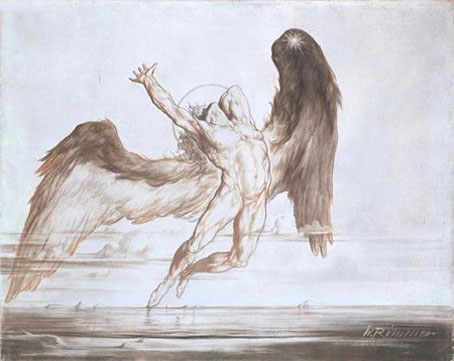
Comment posted 2-21-11:
Matthew 22:29-30 (King James Version)
29Jesus answered and said unto them, Ye do err, not knowing the scriptures, nor the power of God.
30For in the resurrection they neither marry, nor are given in marriage, but are as the angels of God in heaven.
Hipgnosis. Hypnosis.Gnosis (from one of the Greek words for knowledge, γνῶσις) is the spiritual knowledge of a saint[1] or mystically enlightened human being.
il·lu·mi·nism (-lm-nzm)
n.
1. Belief in or proclamation of a special personal enlightenment.
2. Illuminism The ideas and principles of various groups of Illuminati.
hip (hip)
- sophisticated; knowing; aware
- fashionable; stylish
- of or associated with hipsters or hippies
"Hippies" = "Illuminati" It's now no secret.
The phrase hip hop is a combination two separate slang terms—"hip", used as African American Vernacular English (AAVE) as early as 1898, meaning current or in the know, and "hop", for the hopping movement.
 ...after all, what is in a name?
...after all, what is in a name?
Wikipedia quote:
When first starting out, Powell and Thorgerson adopted their name from graffiti they found on the door to their apartment. Thorgerson said they liked the word, not only for sounding like "hypnosis," but for possessing "a nice sense of contradiction, of an impossible co-existence, from Hip = new, cool, and groovy, and Gnostic, relating to ancient learning."[1]
...it wouldn't be "hip" as in "in the know" in say, a secret agenda of some kind, and "gnosis" as in
Eric Voegelin
Eric Voegelin (1901–1985), partially building on the concept of gnosis as used by Plato and the followers of Gnosticism, along with how it was defined by Hans Jonas,[18] defined the gnosis[19] of the followers of Gnosticism[20] as religious philosophical teachings that are the foundations of cults. Voegelin identified a number of similarities between ancient Gnosticism and those held by a number of modernist political theories, particularly communism and nazism.
Voegelin identified the root of the Gnostic impulse as alienation, that is, a sense of disconnection with society, and a belief that this disconnection is the result of the inherent disorder, or even evil, of the world. This alienation has two effects:
The belief that the disorder of the world can be transcended by extraordinary insight, learning, or knowledge, called a Gnostic Speculation by Voegelin (the Gnostics themselves referred to this as gnosis).
The desire to create and implement a policy to actualize the speculation, or as Voegelin described it, to Immanentize the Eschaton, to create a sort of heaven on earth within history by triggering the apocalypse.
According to Voegelin the Gnostics are really rejecting the Christian eschaton of the kingdom of God and replacing it with a human form of salvation through esoteric ritual or practice.
The primary feature that characterizes a tendency as gnostic for Voegelin is that it is motivated by the notion that the world and humanity can be fundamentally transformed and perfected through the intervention of a chosen group of people (an elite), a man-god, or men-Gods, Übermensch, who are the chosen ones that possess a kind of special knowledge (like magic or science) about how to perfect human existence.
This stands in contrast to a notion of redemption that is achieved through the reconciliation of mankind with the divine. Marxism therefore qualifies as "gnostic" because it purports that we can establish the perfect society on earth once capitalism has been overthrown by the "proletariat." Likewise, Nazism is seen as "gnostic" because it posits that we can achieve utopia by attaining racial purity, once the master race has freed itself of the racially inferior and the degenerate.
In the two cases specifically analyzed by Voegelin, the totalitarian impulse is derived from the alienation of the individuals from the rest of society. This leads to a desire to dominate (libido dominandi) which has its roots not just in the Gnostic's conviction of the imperative of his vision but also in his lack of concord with a large body of his society. As a result, there is very little regard for the welfare of those who are harmed by the resulting politics, which ranges from coercive to calamitous (e.g. the Russian proverb: "You have to crack a few eggs to make an omelet").
Immanentizing the eschaton
One of his most quoted[who?] passages is the following:
The problem of an eidos in history, hence, arises only when a Christian transcendental fulfillment becomes immanentized. Such an immanentist hypostasis of the eschaton, however, is a theoretical fallacy.[5]
From this comes the catch phrase: "Don't immanentize the eschaton!" which simply means: "Do not try to make that which belongs to the afterlife happen here and now." or "Don't try to create heaven on earth."
When Voegelin uses the term gnosis negatively, it is to reflect the word as found in the Manichaeism and Valentinianism of antiquity. As it is later then immanentized (or manifest) in modernity in the wake of Joachim of Fiore and in the various ideological movements outlined in his works.[6] Voegelin also builds on the term gnosticism as it is defined by Hans Jonas in his The Gnostic Religion in reference to Heidegger's gnosticism. Which is to have an understanding and control over reality that makes Mankind as powerful as the role of God in reality.
Voegelin was arguing from a Hellenistic position that good gnosis is derived from pistis (faith) and that the pagan tradition made a false distinction between faith and noesis. Furthermore, this dualist perspective was the very essence of gnosticism via the misuse of Noema and caused a destructive division between the internal and external world in human consciousness. To reconcile the internal (subjective) and external (objective) world of consciousness was the restoration of order.[7][8]
Voegelin’s conception of gnosis and his analysis of Gnosticism in general has been criticized by Eugene Webb. In an article entitled "Voegelin’s Gnosticism Reconsidered", Webb explains that Voegelin’s concept of Gnosticism was conceived "not primarily to describe ancient phenomena but to help us understand some modern ones for which the evidence is a great deal clearer."[21] Webb continues, "the category (of Gnosticism) is of limited usefulness for the purpose to which he put it…and the fact that the idea of Gnosticism as such has become so problematic and complex in recent years must at the very least undercut Voegelin’s effort to trace a historical line of descent from ancient sources to the modern phenomena he tried to use them to illuminate."[22]
Me? I'm not concerned with historical Gnostic "continuity". I'm just concerned about the welfare of the "eggs".



No comments:
Post a Comment